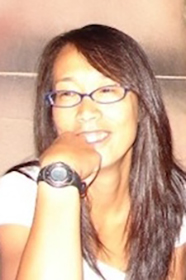 BA, MA, PhD (The University of Kansas)
BA, MA, PhD (The University of Kansas)Lecturer
Contact
Office: Burns 3N5
Email: yuki.watanabe@otago.ac.nz
Research Interests
Contemporary popular culture, gender and media (femininity and masculinity), popular culture in Asia, political economy of media, intercultural communication, and the use of technology in instruction.
My research centers on the interplay between culture and technology. Asian popular culture, social media, and electronic communication are themes my research focuses on. Specifically, I examine how electronically mediated communication can enable, constrain, or distort meaningful social interaction and communication across three streams of research: contemporary popular culture in the global context, the intersection of technology and intercultural communication, and the use of communication technology in education and learning outcomes.
To uncover novel understandings of the interrelationships between media technology and culture, my methodological approach is interdisciplinary and pluralistic, integrating techniques of analysis from sociology, cultural studies, communication studies, feminist scholarship, critical race theory, and postcolonial theory. In particular, I am interested in the effects of media on social interaction and communication, and how this plays out in the context of Asian popular culture, including anime, manga, and K-pop.
Background
Before embarking on an academic career, I worked in television broadcasting in Japan. I had a two-year stint as a cast member of a weekly television show that was nationally broadcast on Japan's public broadcasting organisation, NHK.
I also worked as an assistant director for a local NHK station and in television and radio in the US. In addition to my academic work, I serve as a board member for Volleyball Otago and for Te Tio Kiorangi/Blue Oyster Art Project Space.
Teaching
- MFCO 318 Indigenous Media
- MFCO 102 Media, Power, Society
Publications
Alm, A., & Watanabe, Y. (2023). Machine translation in language education: Perspectives from advanced language learners. In B. Bédi, Y. Choubsaz, K. Friðriksdóttir, A. Gimeno-Sanz, S. B. Vilhjálmsdóttir & S. Zahova (Eds.), CALL for all Languages: Short papers from EUROCALL. (pp. 43-47). València, Spain: Universitat Politècnica de València. doi: 10.4995/EuroCALL2023.2023.16919
Alm, A., & Watanabe, Y. (2023). Integrating ChatGPT in language education: A Freirean perspective. Iranian Journal of Language Teaching Research, 11(3), 19-30. doi: 10.30466/ijltr.2023.121404
Watanabe, Y. (2023). Exploring gender dynamics and popular media in contemporary Japan: Interrogating post-#MeToo mediatization in the harem genre. Proceedings of the Australian & New Zealand Communication Association (ANZCA) Conference: Ka mua, ka muri: Bridging communication pasts and futures. (pp. 96). Retrieved from https://www.anzca2023.com
Alm, A., & Watanabe, Y. (2022). Online machine translation for L2 writing across languages and proficiency levels. Australian Journal of Applied Linguistics, 5(3), 135-157. doi: 10.29140/ajal.v5n3.53si3
Watanabe, Y., Gibbs, L., Templer, K., & Weston, K. (2022, November). Lecturing alone: The reflections on University instructors on their teaching during Covid-19 pandemic. Verbal presentation at the COVID-19’s Impact on Teaching and Learning at the University of Otago: Lessons Learned Symposium, Dunedin, New Zealand.
